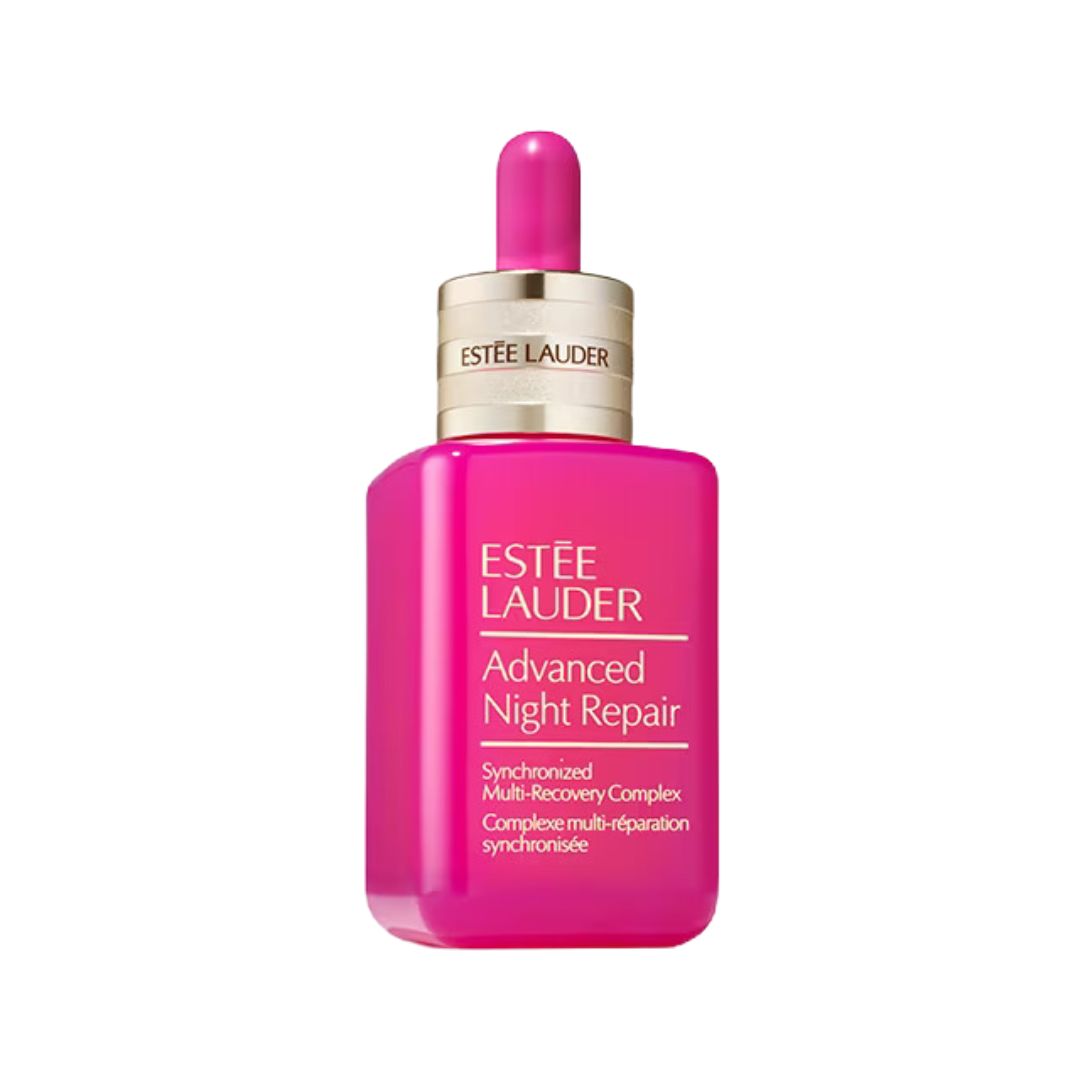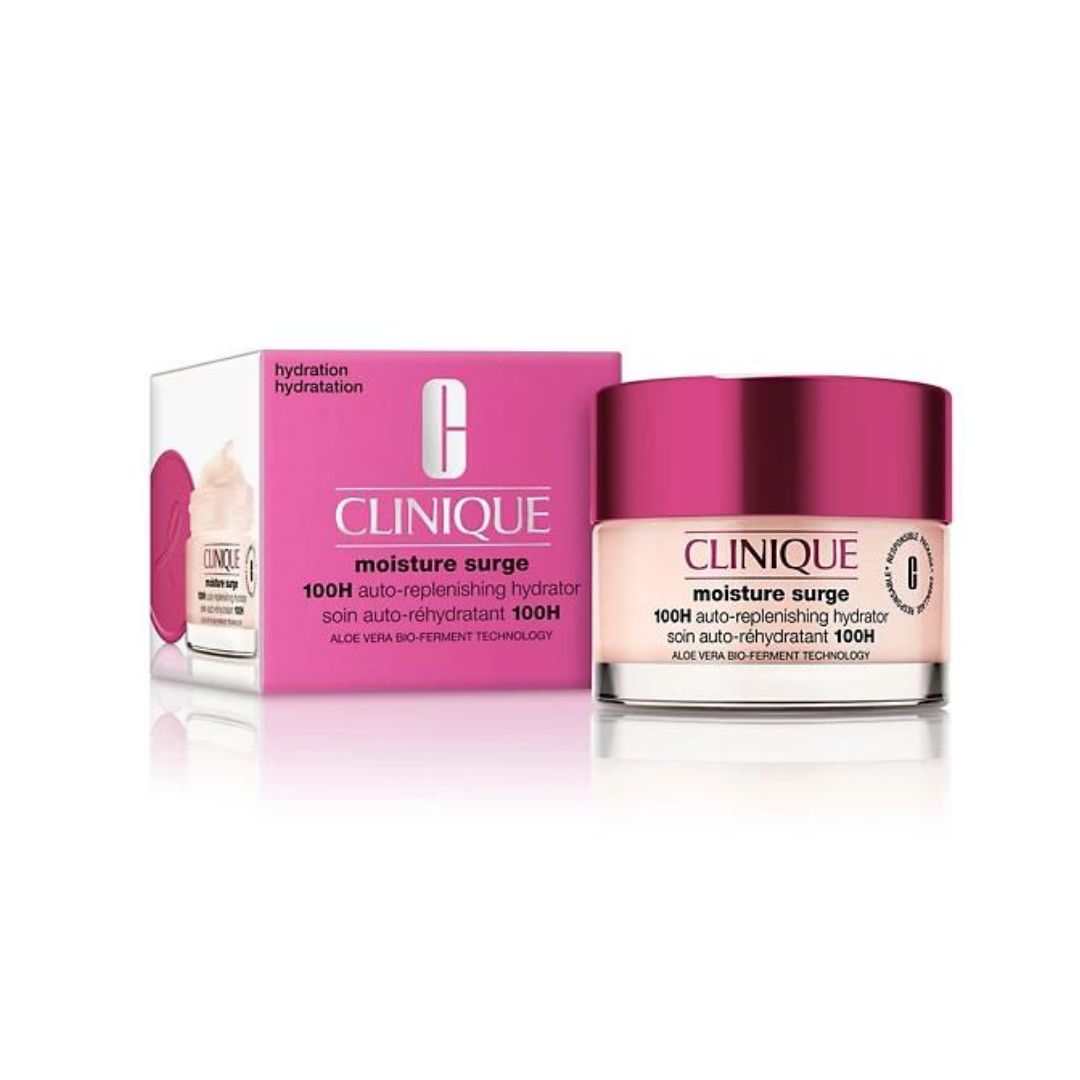7 breast cancer symptoms I wish I'd known about - plus, what being diagnosed with cancer so young taught me
This Breast Cancer Awareness month, read up on the symptoms.
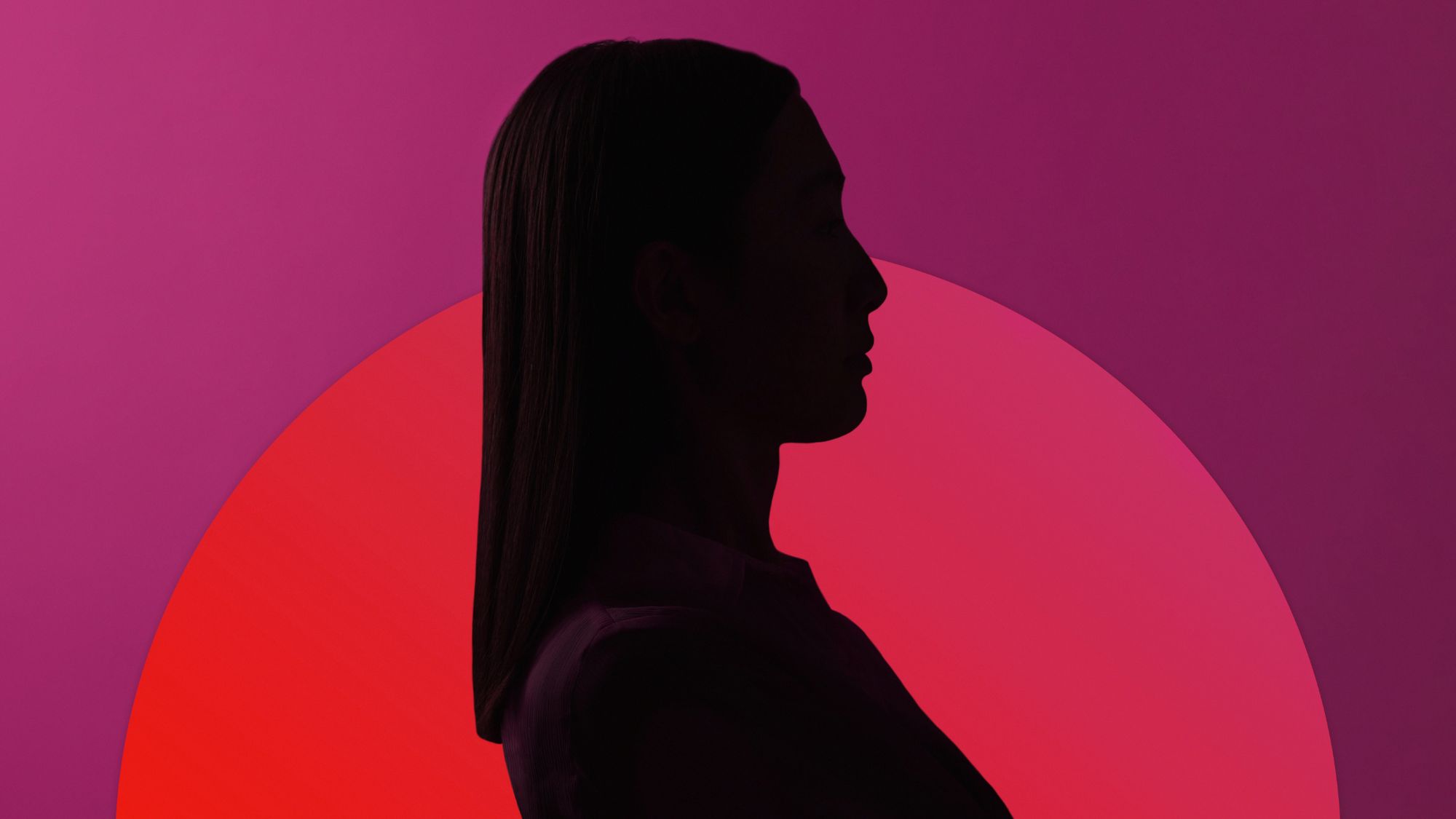
This month marks Breast Cancer Awareness Month - an entire month dedicated to raising awareness of the most common cancer in the UK. That's why here at Marie Claire UK we're making it our mission to educate you on the symptoms of breast cancer that often go unnoticed.
Sadly, there aren't that many obvious symptoms - which is why it's so important to clue yourself up on the subtler warning signs that indicate you may have it.
According to Breast Cancer Now, 11,500 women and 85 men still die from breast cancer in the UK every year. To put that into context, it translates to one woman being diagnosed with breast cancer every ten minutes in the UK.
Wondering what the most obvious symptoms are and how one woman knew she had breast cancer? Below, she bravely shares her story - of battling cancer through a global pandemic aged just 27. Plus Jacqueline Lewis, a consultant breast surgeon at Bupa Cromwell Hospital, shares some important stats on the signs and symptoms of breast cancer, and what you should be keeping an eye out for, whatever your age.
How did you know you had breast cancer? 7 common signs of breast cancer to look out for
Often the first symptom women notice is a lump or area of thickened tissue in the breast or underarm, explains Lewis.
Other common symptoms are:
- A change in size in one or both of your breasts
- A discharge of fluid from either of your nipples
- A change in the texture and look of your breasts or nipples
- Irritation of your breasts or nipples
- A rash on the breasts or nipples
- Bloody discharge from the nipple.
How often should I check my breasts?
As every woman’s breasts are different, there is no right or wrong way of checking them, reassures Lewis.
Marie Claire Newsletter
Celebrity news, beauty, fashion advice, and fascinating features, delivered straight to your inbox!
That said, it's important that you get into a regular routine of checking your breasts. This way, you'll be able to identify any changes and report them to your GP, shares the pro.
What’s the best way of checking your breasts?
To check your breasts for abnormalities, try the following:
- First, start by looking at the size and shape of each breast. Does it look any different to normal?
- Next, feel for any lumps, remembering to check your nipples, armpits and the skin on your breasts, too.
- Feel anything different than usual or keen to get a medical professional to do a check for you? Do book an appointment with your local GP, who's best positioned to be able to help.
At what age should you start checking your breasts?
There is no specific age that you should start checking your breasts, says Lewis. However, the earlier you start the more likely you are to be able to recognise what is normal for you and if there is anything unusual.
Once you’re over 50, you’ll be invited for a breast screening mammogram. You will be offered this screening every three years until you’re 70. However, it is important to note you should still be checking your breasts regularly – a breast screening mammogram shouldn’t replace your own regular breast checks.
Shop products now
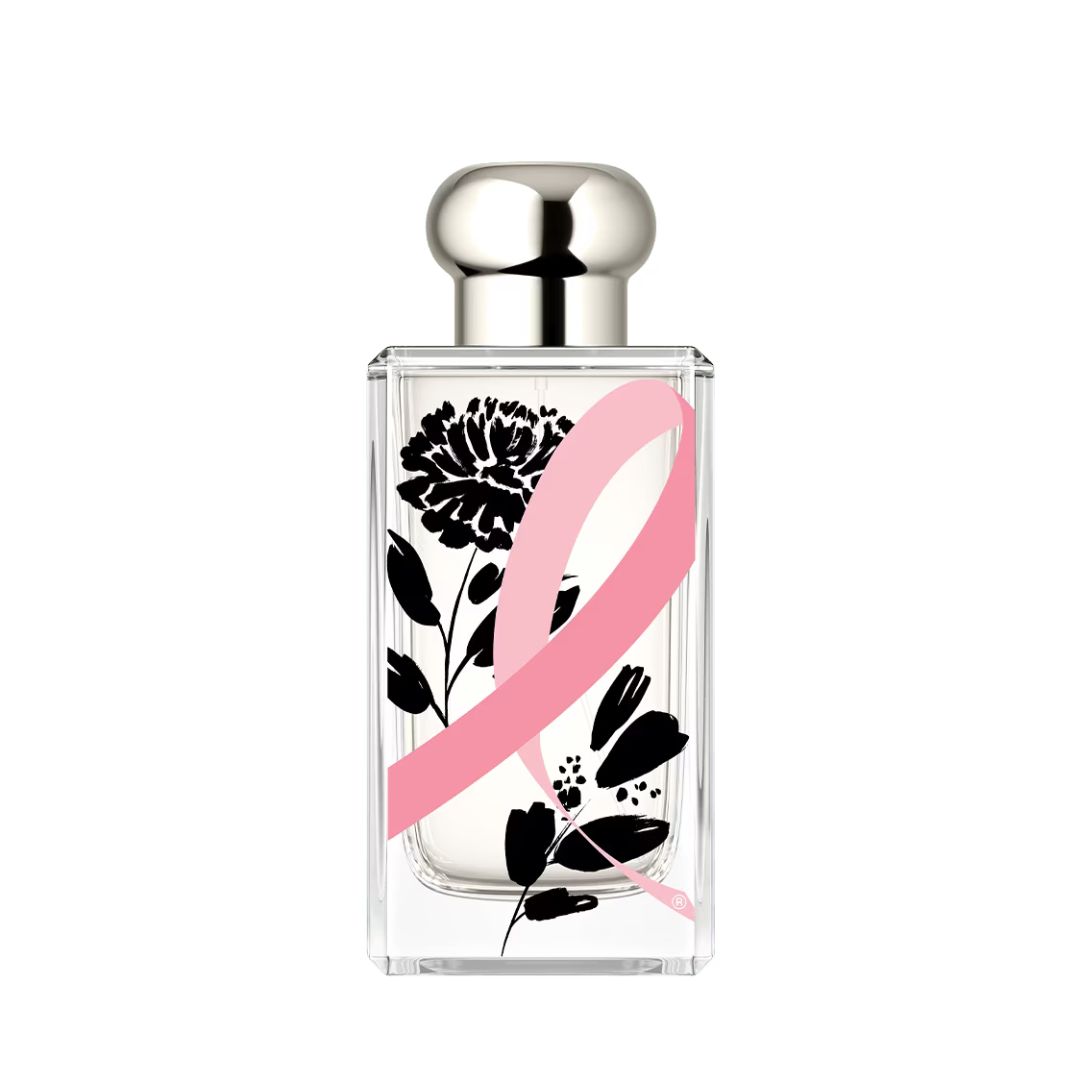
From the Estée Lauder Companies Breast Cancer Campaign comes this special edition Peony & Blush suede cologne. One for you if you're keen to support the cause or like the smell of peonies, apple, jasmine, and suede.
"At 27, I discovered I had stage 3 breast cancer. Here's what it taught me"
Natasha Lewis is a 30-year-old teacher from Hertfordshire. She works full time but loves baking and going to the gym in her time off. She found out she had breast cancer when she was just 27 years old.
"I first noticed the lump at the beginning of February 2020, while having a shower. I shower in the same way every single day, so I’m aware of any changes in my body and this was the first time I’d felt a lump in the top right-hand side of my right breast."
"I was home alone and felt really unsure about what I should do. My body’s natural reaction was to sit down or else I was going to pass out. As I had such an extreme reaction to what I’d felt, I knew it could be something more serious than just a hormonal change. If I hadn’t had that reaction to the lump, then I may not have visited my GP."
"I had the lump checked a week after I found it. I was offered a faster appointment but as I had previously been poorly with swollen glands, which is quite a regular occurrence for me, so I wanted to give it a few days to make sure it wasn’t the cause of the lump."
Fighting the nerves
"I remember how nervous I felt that day. I’m quite self-conscious of my body and didn’t necessarily feel comfortable showing my breasts to a male GP. Once I'd met him, I felt more at ease and was instantly reassured and comforted. I knew however nervous it made me feel, I was doing the right thing in looking after myself."
"One takeaway for me: you can't be self-conscious when it comes to your health. I felt so nervous about showing the GP my breasts, but I knew it was the right thing to do. Plus, it's their job as a medical professional to try and make you feel at ease, where possible. I’d really urge anyone who feels the same way that I did, to get checked as soon as possible. It's over in no time and not as embarrassing as you build it up to be in your head at all."
"Shortly after he'd checked my boobs, my GP told me that it was likely nothing serious. He said that because I was young and had no history of breast cancer in my family, he didn't think I needed to worry. However, as he couldn’t guarantee this, he sent me for further testing."
"I was lucky that the GP sent me for more tests and took my concerns seriously. Although he didn’t think it was cancer, he wanted to rule everything out, especially as I was so young. I'm so glad he listened to me and was concerned, as I was, about the reaction I’d had when I found the lump."
Playing the waiting game
"Next came the waiting. I tried to keep myself occupied and my mind busy until I had the ultrasound, but I still couldn't shake the memory of how I'd reacted when I first found the lump. I just knew it wasn’t a normal part of my breast and that it wasn’t like anything else I’d ever experienced."
"I was given an ultrasound and biopsy. At the ultrasound, I saw shadowing. It was at that point I knew it was cancer. I remember speaking to the man doing the ultrasound and saying I knew shadowing meant cancer, but he was unable to confirm it until I’d had my biopsy later that day."
"Four days later, I had my follow up appointment with the GP to tell me the results. I’d mentally prepared myself for the worst, even though all my friends and family were telling me to remain positive. When the GP came to get me, he didn't say a word for the entire walk from the waiting area to the consultation room. This doubly confirmed for me that it had to be cancer."
I felt numb, even though I knew it was coming.
"He sat me down and came out with it, confirming that I had was breast cancer. Even worse, he warned that it was growing quickly, and stressed how lucky I was that I'd found it when I had. He then went through the process of what would happen next and who I’d be referred to for treatment."
"I felt numb, even though I knew it was coming. I’m a realist and like to know the facts and what happens next. I needed to know when my next appointment was and how to get rid of the cancer—as fast as possible."
"It hit me that I had something alien growing inside of me, which I couldn’t control. But I knew I had to take back the control and get rid of it. This was also the day I named my tumour – Friedel – after Tottenham’s ex-goalkeeper who I loved."
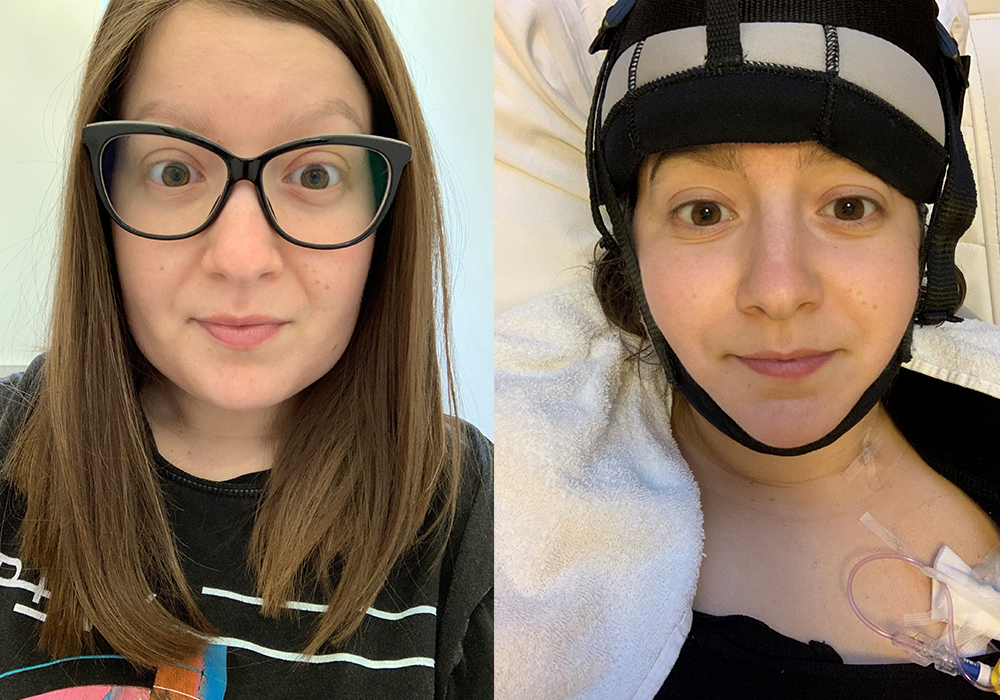
Treating my cancer
"I was referred straight away to meet my surgeon, Mr Giles Davies at Bupa Cromwell Hospital. He was so lovely and personable, which put me at ease a little. He explained the different types of cancer to me and talked through the different treatment options for each type. I had no understanding of cancer—I didn't even know there could be this many different types. He made it very clear to me what my options would be."
I had something alien growing inside of me that I couldn’t control
"Another blow was when we then found out that I was triple negative, which meant I wasn’t hormone receptive and my tumour wouldn’t respond to certain treatments. Giles then referred me to an oncologist and explained my tumour would respond best to chemotherapy, followed by a lumpectomy."
"I was also told that I needed to protect my fertility as I was only 27. It was suggested that I went for egg harvesting, which meant a month of fertility treatment, followed by hormone-blocking injections throughout chemo and for a year after."
"Before chemo started, I was sent for multiple scans and tests to make sure the cancer was just in one place and to check the size and shape of it."
Beginning chemotherapy
"I began chemo on 3rd April which continued till 28th August. I had 16 rounds in total. If you're wondering why the process was so long, or why I had so many rounds, it was because of the type of cancer I had—not many people have to have quite that many, but unfortunately for me, I did."
"I was fortunate enough to be given the option to use a cold cap, although it doesn't work for everyone. Cold caps help with the regrowth of hair. Just over a month out of chemo and I already have a thick layer of hair covering my head."
"Following 16 rounds of chemo, I met with Giles again who explained that as my tumour had been so responsive to the chemo, the lumpectomy would be a minimally invasive procedure, which would help to keep scarring to a minimal."
Dealing with cancer
"I won't lie, treatment was really lonely. [Because of Covid restrictions], I wasn’t allowed my family or partner to accompany me. I’ve also not been able to see friends, as I've been shielding my lowered immune system (thanks, chemotherapy)."
"The nursing team throughout my operation and chemotherapy were absolutely unbelievable. They became a second family to me. The most difficult thing for everyone was the no contact—if I’d had a bad day, they weren’t able to give me a hug."
Finding freedom
"A week after surgery, I met with Giles again who told me I had a complete response to surgery and chemo. This meant I was now cancer-free. I can't describe the feeling."
"The next step is 10 sessions of radiotherapy to protect me from recurrence in the future."
3 breast cancer need-to-knows
1. Get it checked—and don't wait
"If you're at all worried about your breast health, remember, you know your body better than anyone else. If you’re unsure about something, then get it checked. The sooner, the better. Don't wait," stresses Natasha.
2. Know that you're not alone
This one's key. "If you do find yourself in this position, know there are other women experiencing the same thing," she shares. "They understand what you're going through, and are able to support you through your journey in a very unique way."
She also encourages you to reach out, if you feel you can. "I found a group on Facebook of women of a similar age to myself who have had breast cancer, too. They've been an incredible support and understand exactly how I’m feeling."
3. Be aware of your body and check, check, check
"Throughout my cancer journey, I met so many people who were my age and even younger battling breast cancer," she adds. "It happens, even though I wish it didn’t."
The most important advice she can share? "Be aware of your body and any changes. Regularly check your breasts and know what they look and feel like throughout different stages of your monthly cycle."

Ally Head is Marie Claire UK's Senior Health and Sustainability Editor, nine-time marathoner, and Boston Qualifying runner. Day-to-day, she heads up all strategy for her pillars, working across commissioning, features, and e-commerce, reporting on the latest health updates, writing the must-read wellness content, and rounding up the genuinely sustainable and squat-proof gym leggings worth *adding to basket*. She also spearheads the brand's annual Women in Sport covers, interviewing and shooting the likes of Mary Earps, Millie Bright, Daryll Neita, and Lavaia Nielsen. She's won a BSME for her sustainability work, regularly hosts panels and presents for events like the Sustainability Awards, and is a stickler for a strong stat, too, seeing over nine million total impressions on the January 2023 Wellness Issue she oversaw. Follow Ally on Instagram for more or get in touch.
-
 This iconic rose perfume is a compliment magnet—it makes me feel ‘put together’ after just one spritz
This iconic rose perfume is a compliment magnet—it makes me feel ‘put together’ after just one spritzGrown-up and elegant, yet not at all dated.
By Denise Primbet
-
 Spring has finally sprung - 6 best outdoor workouts that are totally free and boost both body and mind
Spring has finally sprung - 6 best outdoor workouts that are totally free and boost both body and mindSoak in the nature and boost Vitamin D *and* endorphins.
By Anna Bartter
-
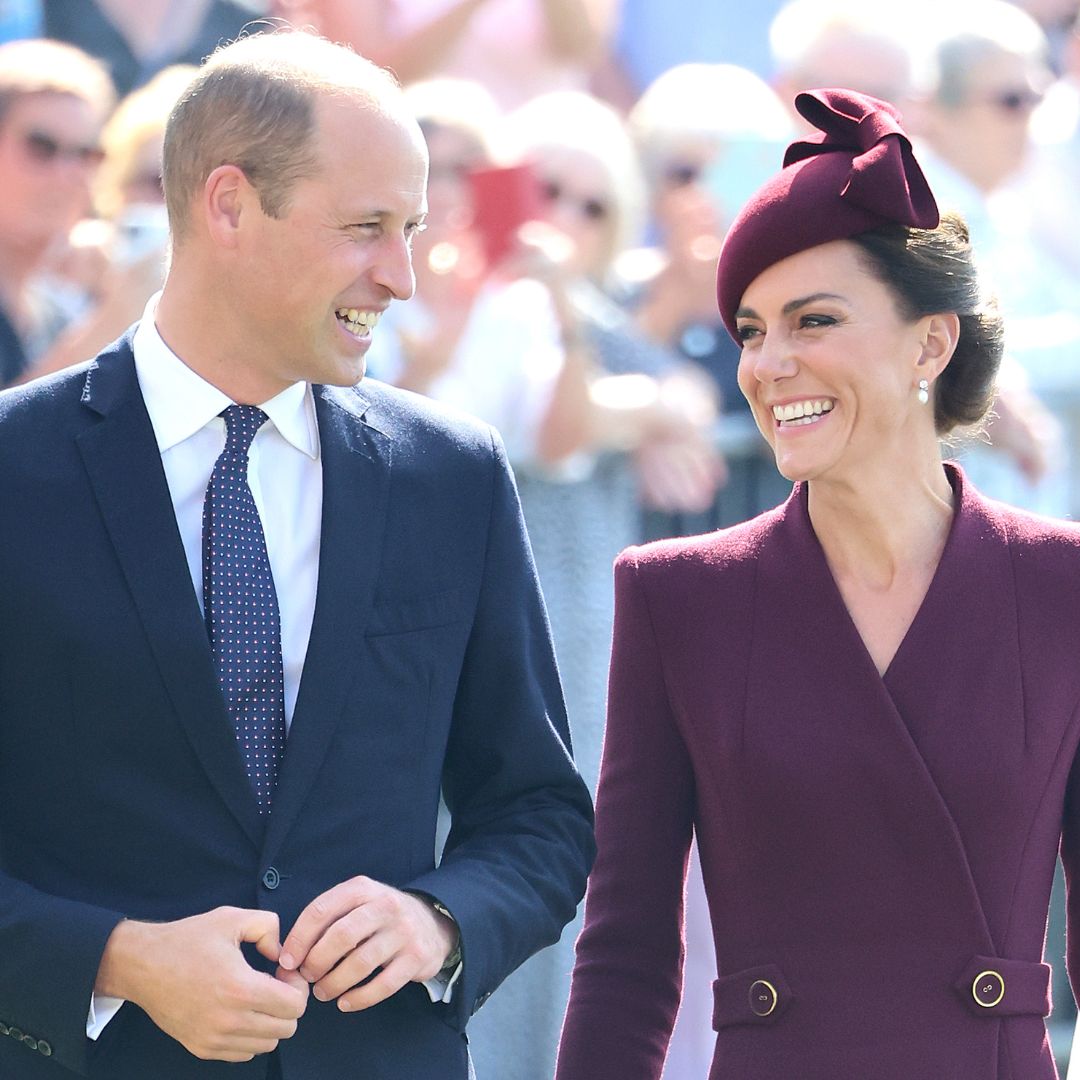 Prince William and Princess Kate's rare social media move is going viral
Prince William and Princess Kate's rare social media move is going viralBy Jenny Proudfoot
